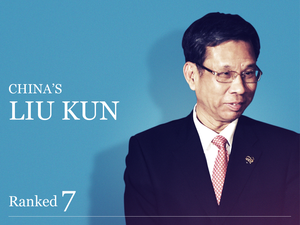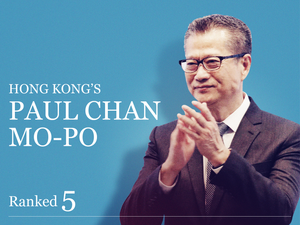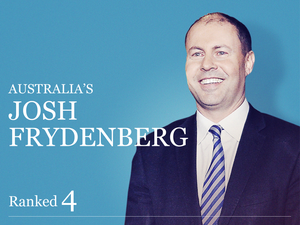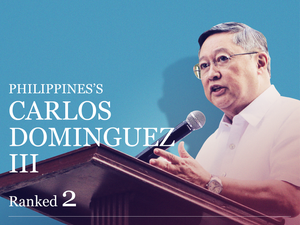Despite his continuingly favourable reputation, Singapore’s Heng Swee Keat faces some onerous challenges ahead and slips one place this year to third in the FinanceAsia finance minister rankings.
The 57-year old is expected to be named prime minister within the next three years after he was elected first assistant secretary-general by the ruling People’s Action Party (PAP) in November.
Barring shock events, this all but anoints him to succeed Prime Minister Lee Hsien Loong, who is nearly 67 and has said that he intends to step down before he turns 70.
Heng is knowledgeable about the commercial, industrial and financial sectors. Prior to working in the Ministry of Finance, he was permanent secretary of the Ministry of Trade and Industry and managing director of the Monetary Authority of Singapore (MAS).
But some observers think he could struggle with a wider remit.
“I find Heng Swee Keat to be an ideal civil servant and middle manager: competent, efficient, quiet, unobtrusive,” said Singaporean historian Thum Ping Tjin.
“The problem is that he is being picked to become a political leader, and thus needs to have a very different skill set: formulate and articulate a vision, lead and inspire the public. Singapore is in desperate need of political leadership, and I can’t see him providing it.”
Singapore faces an increasingly uncertain world due to the heightened strategic competition and trade tensions between countries, most notably the US and China, which is undermining support for the kind of rules-based multilateral trading that an open economy such as Singapore’s thrives on.
So, along with various ministries, Heng has been pushing hard for the conclusion of the Regional Comprehensive Economic Partnership (RCEP), a free trade agreement among six Southeast Asian nations including Singapore, as well as six Asia Pacific countries including China.
Linked to this is Heng’s need to balance Singapore’s relations with the US, a historic ally, with those it is building with an increasingly rich and assertive China.
In keeping with this, he has welcomed China’s Belt and Road Initiative and pledged to continue to working closely with other governments, multilateral development banks and private sector stakeholders to support Asia’s growing infrastructure needs.
In February, Heng announced an expansionary budget for 2019, with an expected deficit of S$3.5 billion ($2.6 billion), or 0.7% of GDP, after recording surpluses in the previous three years totalling S$18.5 billion. This year’s deficit is largely due to more than S$7 billion of benefits for Singapore citizens, including healthcare benefits and tax rebates.
The billions of dollars of goodies for Singaporeans has fuelled speculation that elections might be called this year, though Heng himself has said that the budget was not based on election cycles but was rather a “strategic plan” to ensure Singapore’s long-term success.
This year’s fiscal revenue is expected at S$73.7 billion, S$1 billion more than earlier estimated, while total expenditure is projected to inch up 1.6% annually to S$80.3 billion.
¬ Haymarket Media Limited. All rights reserved.
$(document).ready(function () {
googletag.cmd.push(function () {
googletag.defineSlot(‘/5450/new-financeasia/sidebar/sidebar-content’, [[300, 250], [300, 600]], ‘gpt-ad-sidebar-d2acdbbcaba74c809311ba576aa7e0b8’).addService(googletag.pubads());
googletag.pubads().enableSingleRequest();
googletag.pubads().collapseEmptyDivs(true);
googletag.enableServices();
});
$(‘#js-ad-d2acdbbcaba74c809311ba576aa7e0b8’).append(“
“);
googletag.cmd.push(function () {
googletag.display(‘gpt-ad-sidebar-d2acdbbcaba74c809311ba576aa7e0b8’);
});
googletag.cmd.push(function () {
googletag.pubads().addEventListener(‘slotRenderEnded’, function (event) {
if (event.slot.getSlotElementId().indexOf(‘gpt-ad-prestitial’)!==-1) {
if (!event.isEmpty) {
console.log(“presad”)
if (navigator.cookieEnabled)
window.prestAd.initCookie(10)
else if (window.localStorage) {
window.prestAd.initLocalStorage(10)
} else
console.log(‘no cookie & localstorage’);
}
}
});
});
});
Source : https://www.financeasia.com/article/heng-swee-keat-keeping-the-lion-city-competitive/450366








